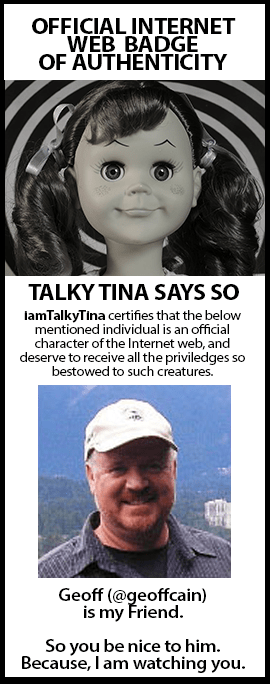I am sometimes forwarded articles from the Comical of Higher Ed and elsewhere that proclaim the death of the MOOC, that they are not ready for primetime, or that they are better for professional development. All of which I find very funny. The so-called “hype cycle” has played through the press, the entrepreneurs all got their cold dose of reality, and now I think that we can get back to the real work of teaching and learning online, using a wide-variety of platforms and methods, including MOOCs.
In the meantime, I am taking a MOOC on “How Writers Write Poetry” from the University of Iowa, and another one on the art, culture and religion of the Alhambra from Universidad de Granada (La Alhambra: historia, arte y patrimonio). The one from U de G is being taught in Spanish and English. Incidentally, I can’t think of a better time in the history of the West to be promoting courses that increase a greater understanding of Islamic Culture and our past pollinations with the Al-Andalus cultures. And this is what education is supposed to do. This is why we got involved in education in the first place: we have a chance, through education, to make a difference, to shift out-moded world-views, to effect positive change by bringing learners a broader perspective on the world.
I don’t really buy into the Gartner “hype cycle” idea. I have written about that here before – it doesn’t predict anything, it is not a “cycle,” and there is no way to measure anything with it. It is basically a valueless subjective claim about any process or technology. With that said, I thought the expectations of MOOCs when the corporations started to get involved were just ridiculous. What public college would think that putting classes online were going to be a cash cow? That myth was debunked in the late 90s if not earlier. One should not go into education expecting to get rich quick. There must be some other reason people go into education – like they believe it is worth doing for some other reason besides money. Online classes (including MOOCs) are just another delivery method. Just like face-to-face courses, they can be designed well or poorly. As the corporations eventually learned, design and support is everything. What software you use or how you deliver videos are nearly irrelevant compared to design and support. As soon as they figured out that MOOCs are real work, they require careful instructional design, and that the students need access to the same kind of support that students need in face-to-face courses (or even in “traditional” online courses), they basically abandoned the idea and declared MOOCs as okay for professional development but not “real” courses. Good. Lets get the corporations out and the teachers back in! Lets get back to the true roots of MOOCs – Connectivist MOOCs with real engagement and interaction rather than video collections online. Now that we have gotten the ridiculous expectations out of the way we can get back to teaching and learning.
Related articles
- Model for democratisation of the contents hosted in MOOCs (distance-educator.com)
- Exploring Andalusia’s Islamic history (aquila-style.com)
- What’s New With MOOCS? (digitallearningandteaching.wordpress.com)





